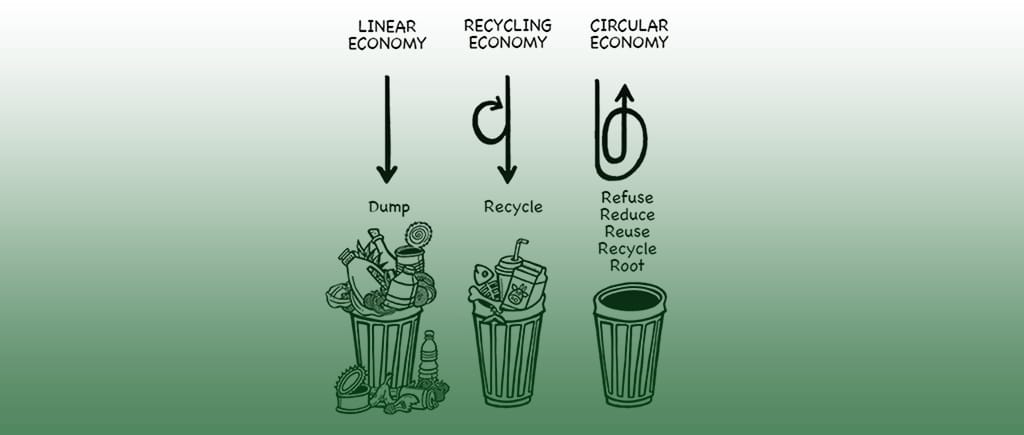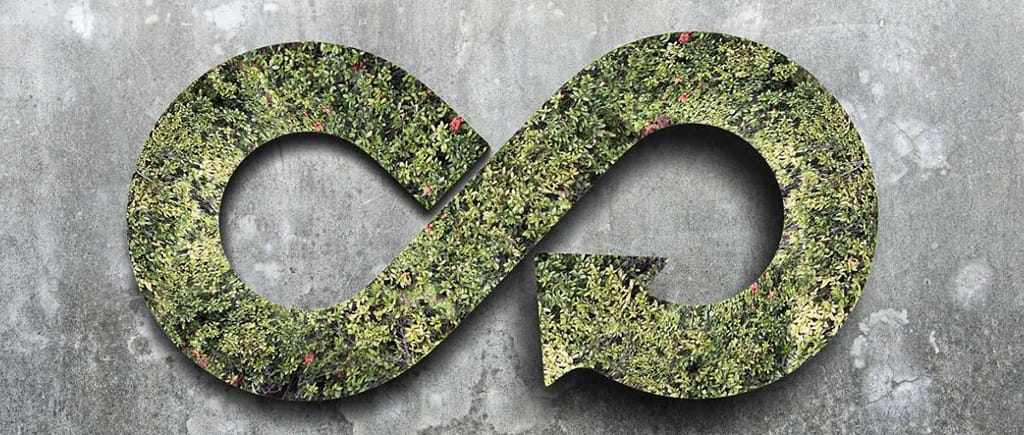WHAT IS CIRCULAR ECONOMY?
The linear system of extracting, producing, consuming and ultimately throwing away, and on which our current economic system is based, is at the end of its rope and makes us dependent on increasingly scarce materials. The environment has become a dumping ground for our waste. With the loss of over 60% of the planet’s biodiversity and an island of waste floating in the Pacific 45 times the size of Switzerland, becoming aware of the ecological impacts of our mode of production and consumption is now a vital issue.
The waste and recycling economy are not the only pillars of the circular economy, but contribute significantly to it. To put it simply, it is an economy based on transforming waste into a resource: we recycle and limit waste by giving a second life to objects, waste or more broadly to products. It is based on the principles of sustainable development, because it uses as little as possible polluting or energy-consuming processes, and recovers raw materials to transform, enhance or recycle them.
So the name circular economy is self-explanatory in that waste and by-products are reinserted into the production chain rather than discarded, creating a cycle of use and reuse.

FROM CONCEPT TO REALITY
Waste management and the saving of resources and raw materials are essential issues today, with the objective of being able, through appropriate responses, to create jobs and added value locally. This is our goal!
Organic waste is a product that must be used to the best of our ability. All human activity consists in creating wealth by starting from one product to manufacture another, by transforming things to create new ones. The waste can be this product that you have to know how to use and transform to make a useful material, a true “secondary raw material”.
This is what we do primarily in our recovery centers. Recover organic waste by remunerating it (thus giving us a value). Add value to them by producing biogas and fertilizer while using enriched water from fish farming. Sell products that meet a vital need of populations. Create local jobs. Offer a real ecological alternative, in particular by replacing chemical fertilizers and wood from forests used for cooking.
The success of the circular economy model also depends on consumer behavior. For the process to generate the expected virtuous circle, we must all take our responsibilities.

sign up & get the latest news
Data protection is important to us. You can unsubscribe at any time. See our Your Privacy Rights for more information.
